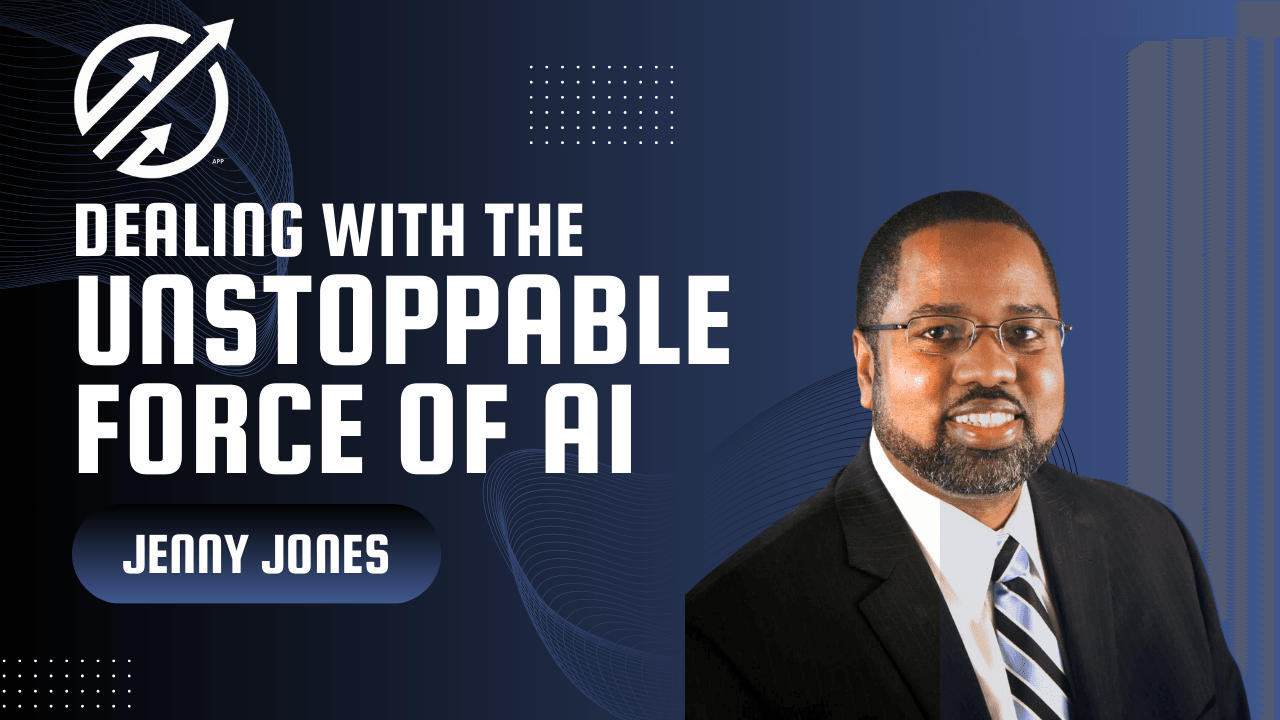When I first heard about AI's potential to revolutionize our world, I thought it was just hype. But that moment changed everything—I found myself sitting across from a robot bartender who could mix drinks better than I could. It was a wake-up call. If I didn't embrace this technology, what would my place in this future landscape be?
The Unavoidable Rise of AI in Our Lives
Artificial Intelligence, or AI, is no longer just a concept from science fiction. It's a reality that’s reshaping our world. I remember when I first heard about AI. It seemed so distant, almost like a dream. But now, it’s here, and it’s growing faster than we can keep up with.
What is AI and Why is it Growing So Fast?
At its core, AI refers to machines that can perform tasks that typically require human intelligence. This includes things like understanding language, recognizing patterns, and making decisions. It’s fascinating to think about how far we’ve come. Just a few years ago, AI was mostly a buzzword. Now, it’s embedded in our daily lives.
Did you know that the AI market size reached $136.55 billion in 2022 ? It’s projected to grow by 13.2% annually . That’s staggering! This rapid growth is driven by advancements in technology and the increasing demand for automation across various sectors.
AI in Our Daily Lives
Let’s take a moment to reflect. How often do we interact with AI without even realizing it? From virtual assistants like Siri and Alexa to recommendation systems on Netflix and Amazon, AI is everywhere. It’s like having a personal assistant at our fingertips, ready to help us with just a voice command.
Virtual assistants manage our schedules.
AI algorithms suggest what to watch next.
Chatbots provide customer service 24/7.
These tools make our lives easier, but they also raise questions. Are we becoming too reliant on technology? Are we losing our ability to think for ourselves? As Gary Marcus wisely said,
“The greatest risk is not that AI will eventually think like humans, but that humans will begin to think like AI.”
Case Studies of AI Integration
Many businesses have recognized the potential of AI and have successfully integrated it into their operations. For instance, in the healthcare sector, AI is used to analyze medical data and assist in diagnosing diseases. This not only speeds up the process but also improves accuracy.
In finance, AI algorithms analyze market trends and help in making investment decisions. Companies that adopt these technologies often see a significant boost in efficiency and profitability. It’s clear that those who embrace AI are not just keeping up; they’re leading the charge.
Industries Embracing AI
AI is not limited to just a few sectors. It has found its way into various industries, including:
Healthcare: AI helps in diagnostics and patient care.
Finance: Algorithms predict market movements.
Customer Service: Chatbots handle inquiries and support.
As we move forward, it’s essential to understand that AI is not just a trend; it’s a necessity. The initial argument surrounding the necessity for AI in daily life aligns with modern societal demands and tech trends. If we don’t adapt, we risk being left behind.
In conclusion, the rise of AI is unavoidable. It’s not just about technology; it’s about our future. Are we ready to embrace it?
The Risks of Ignoring AI
As I look around at my colleagues and peers, I can’t help but notice a troubling trend. Many people are ignoring the rise of artificial intelligence (AI). This isn’t just a tech issue; it’s a personal and professional one. Ignoring AI can have serious consequences. Let’s dive into what happens when we turn a blind eye to this technological revolution.
Consequences of Ignoring AI
First, let’s examine the consequences of ignoring AI. It’s not just about missing out on the latest gadgets or software. It’s about falling behind. Companies that fail to adopt AI risk being left in the dust by competitors who embrace technological advancement. Think about it: if your competitors are leveraging AI to streamline operations and enhance customer experiences, how can you compete?
Job Displacement : Studies suggest that 85 million jobs could be displaced by 2025 . That’s a staggering number. But it’s not all doom and gloom. The same studies indicate that 97 million new roles may emerge in AI and related fields . So, there’s a shift happening.
Market Relevance : In today’s job market, AI skills are increasingly preferred. If you don’t adapt, you risk becoming obsolete.
Staying Relevant in a Competitive Market
In our fast-paced world, staying relevant is crucial. The market is changing, and we must change with it. Ignoring AI isn’t an option. It’s like trying to swim against a strong current. You’ll tire out quickly and get swept away.
Let me share a personal anecdote. I have a colleague who resisted adopting AI tools in our workplace. He believed that his traditional methods were sufficient. But over time, he faced setbacks. His projects lagged behind, and he struggled to keep up with the demands of our clients. Meanwhile, those of us who embraced AI saw our productivity soar. It was a clear lesson: adapt or be left behind .
The Personal Impact of Ignoring AI
On a personal level, ignoring AI can lead to missed opportunities. I remember when I first started using AI tools. At first, I was hesitant. I thought, “Do I really need this?” But once I took the plunge, my work transformed. I became more efficient, and my creativity flourished. The struggle to adapt to AI can be instrumental or detrimental based on one’s willingness to evolve.
As Matt Mullenweg wisely said,
“Technology is best when it brings people together.”
This is especially true for AI. It can enhance collaboration, streamline communication, and foster innovation. But only if we’re willing to embrace it.
Final Thoughts on the AI Revolution
In conclusion, ignoring AI is a risky gamble. The consequences can be severe, both personally and professionally. The market is shifting, and those who resist change may find themselves struggling to keep up. As we navigate this new landscape, let’s remember that the key to success lies in our ability to adapt. Embracing AI isn’t just a choice; it’s a necessity.
So, are you ready to take the leap? The future is waiting.
Making the Leap: Embracing AI
When I first heard about artificial intelligence (AI), I felt a mix of excitement and fear. Excitement because of the possibilities, and fear because I thought it was only for tech experts. But as I dove deeper, I realized that AI is not just for the elite. It’s for all of us. Today, I want to share how we can embrace AI in our everyday lives and work.
Practical Steps for Incorporating AI
So, how do we start? Here are some practical steps:
Identify Your Needs: What tasks take up most of your time? Is it data entry, scheduling, or customer service? Pinpointing these tasks can help you find the right AI tools.
Research AI Tools: There are many accessible AI tools out there. For instance, tools like ChatGPT can help with writing, while Zapier automates repetitive tasks. Start small and see what works for you.
Start Experimenting: Don’t be afraid to try new things. Set aside some time each week to experiment with different AI tools. You might be surprised by how much they can help.
Seek Feedback: Once you start using AI, gather feedback from your team or customers. This will help you refine your approach and make necessary adjustments.
Accessible AI Tools for Regular Users
Many AI tools are designed with the average user in mind. You don’t need a PhD in computer science to use them. Here are a few that I’ve found particularly helpful:
Grammarly: This tool helps improve your writing by suggesting corrections and enhancements.
Canva: With its AI-driven design features, anyone can create stunning graphics without needing design skills.
Google Assistant: This voice-activated assistant can help manage your schedule, set reminders, and even answer questions.
These tools are not just for tech-savvy individuals. They are designed for everyone, making it easier to incorporate AI into our daily routines.
Inspirational Examples
Let’s look at some real-life examples. I remember reading about a small bakery that was struggling to keep up with orders. They decided to implement an AI tool to manage their inventory and customer orders. The result? They reported a 20% increase in productivity! This is just one of many stories where AI has transformed businesses.
Another inspiring case is that of a local marketing agency. They adopted AI to analyze customer data and tailor their campaigns. As a result, over 70% of their clients reported improved engagement. This shows that AI can have a profound impact on customer relationships.
The Importance of Embracing AI
As Dr. Albert Szent-Györgyi once said,
“Innovation is seeing what everybody has seen and thinking what nobody has thought.”
This quote resonates with me because it highlights the need for a shift in our mindset. We must embrace AI, not fear it. The tools are available and affordable. They are here to help us, not replace us.
In conclusion, embracing AI is no longer a choice; it’s a necessity. The world is changing rapidly, and those who adapt will thrive. Let’s not be left behind. By taking practical steps, exploring accessible tools, and learning from inspiring examples, we can all make the leap into the future. Together, we can harness the power of AI to enhance our work and lives. Are you ready to embrace this change? I know I am.




